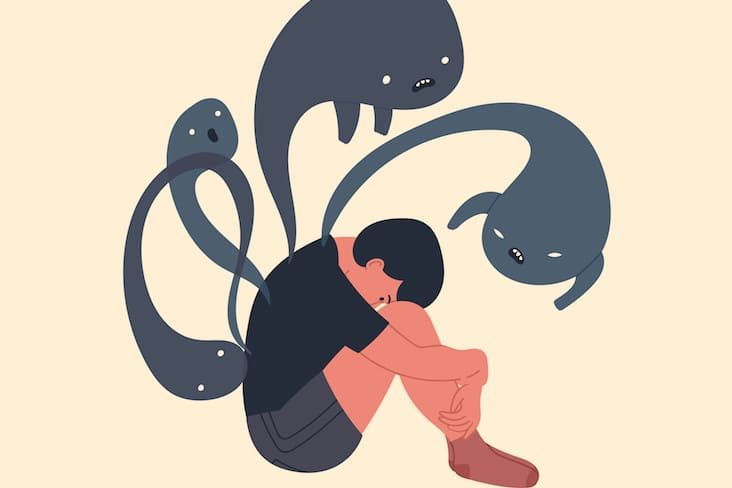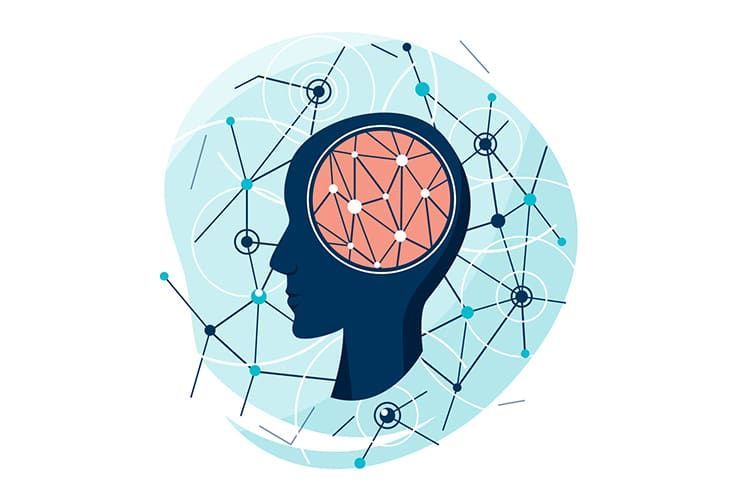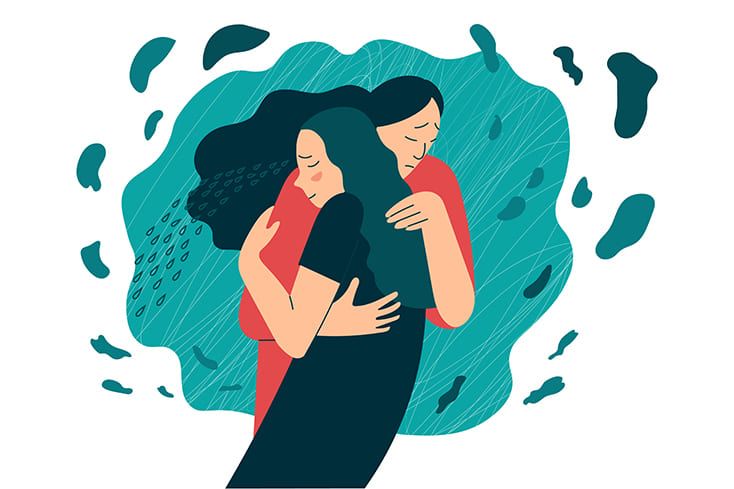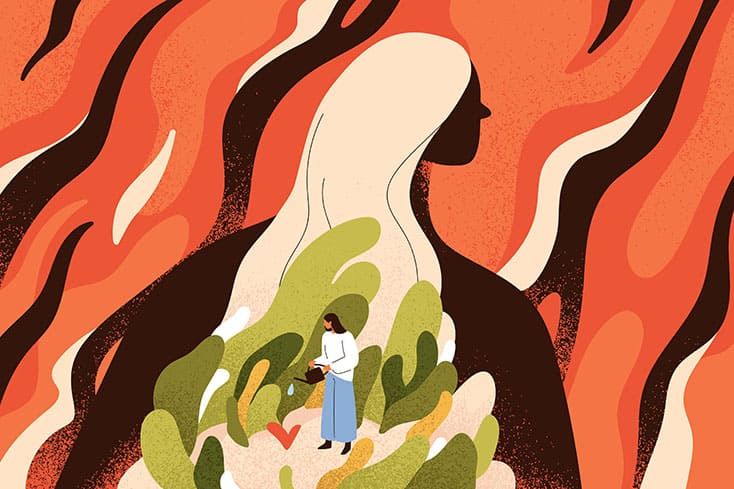我確信的六件事:我與心理疾病的旅程 | 6 Things I Know Are True: My Journey with Mental Illness
MHACC 雙語部落格 Bilingual Blog
Scroll down for the English Version ⬇️
作者:Lauren Perna
原始來源在此:https://www.nami.org/recovery/6-things-i-know-are-true-my-journey-with-mental-illness/
2021年8月16日
「你的大腦正在對你說謊。」
這是我對一位親密朋友說的話,當時她正經歷嚴重的憂鬱症。這句話我很熟悉:每當懷疑與焦慮籠罩自己時,我也會這樣提醒自己。
大腦是一個出了名的「騙子」。有時,它會讓我們記錯事情,或讓我們與他人看到完全不同的現實。有時,大腦的「謊言」則會影響我們如何看待自己。例如,當你正與心理疾病共處時,你很容易相信一切都很糟,沒有人喜歡你,而且情況永遠不會好轉。但事實是:這些從來都不是絕對的真相。特別是最後那句——「事情永遠不會變好」——那絕對是錯的。情況總是有可能變得更好。
為什麼我能這麼確定?因為我在成年後的大部分時間裡,都在努力管理我的心理疾病並改善心理健康。有時,我能有效控制憂鬱與焦慮,度過不錯的幾個月——甚至是幾年;但也有些時候,我陷入絕望的深淵,讓憂鬱滲入日常生活,影響人際關係並傷害自我價值感。雖然我現在狀況良好,但我明白今日有效的方法,明天可能就不適用了。維持心理健康是一段不斷變化的旅程。
然而,我也建立了幾個在困難時刻支撐我走下去的「真理」。
1. 你需要找出最適合自己的方式
這聽起來很顯而易見,但分辨出什麼方法真正對你有效,與「你認為」應該有效的方法,往往並不容易。
網路上有大量的心理健康建議,點一下滑鼠就能查到成千上萬的方法。這些資訊有時確實能改變人生,但它們只是心理健康照護拼圖中的幾塊。對許多人而言,要處理心理健康問題,是一段尋找正確組合的漫長旅程,這其中可能包括治療、藥物、內在探索與實際活動的搭配。
2. 壞時光不代表你的人生是壞的
當你陷入創傷或憂鬱的發作時,可能會覺得沒有盡頭。在那樣的心態下,很容易下出籠統的結論,例如「我這一生都很糟」。
但重要的是要明白:人生中的壞時光,不代表你整個人生都是壞的。
我過去曾被大腦欺騙,相信自己整個人生都很悲慘,而我真的信了。這樣的謊言,只會讓我的憂鬱拖得更久。無論情況現在有多糟、過去有多慘,總是有希望存在。即使你感受不到那份希望——承認那份絕望感也沒關係——但請不要相信「這幾個月或幾年很糟」就等於「你不配擁有美好人生」。
3. 你的過去無法定義你
不論你的過去多麼艱難,它都不應該主導你的未來。
很長一段時間裡,我的大腦讓我相信自己就是一個情緒不穩、焦慮纏身的混亂個體。我以為這就是我本來的樣子,永遠不會改變。
但你在某個人生階段的行為,並不代表你永遠都是那樣的人。人會成長與改變。你過去經歷過的事可以成為你旅程的一部分,但不必定義你是誰。
4. 事情終究會變好
我不是隨便說這句話。我是看著許多人經歷人生最黑暗的時刻,卻成為我認識中最快樂的一群人。
我自己也是一個從小與心理疾病奮鬥的人,也曾一度陷入低谷,但我總能走出來。當你理解前面三個真理時,你也會明白這一點。
5. 心理健康之路不是孤軍奮戰
這場心理健康之旅,你無法單打獨鬥。它真的需要「一個村落」來幫助你。
我說的村落,不只是朋友,而是整個支持網絡——家庭醫師、心理治療師、健身教練、鄰居等等。不是每個人都需要知道細節,但你需要一個關心你、支持你的圈子。
6. 一個好的伴侶會支持你
我從痛苦中學會:健康的關係,來自於對方能在你處於低潮時支持你。
沒有人際關係是完美的——但你需要知道,對方是否願意努力了解你的經歷並回應你的需求。如果他們做不到,就幫助他們理解。表達你的擔憂,或考慮伴侶諮商。若想改善,就必須開口溝通。(但若你正處於不健康甚至有暴力傾向的關係中,請尋求專業協助。)
透過這些真理來引導我的復原過程,我理解到:我們並不孤單。全球有數百萬人正與心理健康問題共處,而如今這個資訊與連結日益便利的時代,我們能聽見他們的故事,並從他們的經歷中學習。
或許,當我們勇敢分享自己的故事時,也會鼓勵更多人發聲,對抗大腦編造的謊言。分享自己的脆弱固然令人畏懼,但對的人會伸出援手。而如果你覺得自己無人可傾訴,那也只不過是大腦告訴你的又一個謊言。
本文最初刊登於 The Mighty。
Lauren Perna 是 Lauren Perna Communications 的創辦人,協助企業透過內容與文案在線上講述品牌故事。她也熱衷於分享自己的經歷,希望幫助正在與心理疾病奮戰的人們。現居麻州,與伴侶、他的兒子,以及他們的狗 Tessie 一同生活。
Written by: Lauren Perna
Original Source from NAMI Blog: https://www.nami.org/recovery/6-things-i-know-are-true-my-journey-with-mental-illness/
August 16 2021
“Your brain is lying to you.”
That’s what I told a dear friend when she was experiencing severe depression. The advice was familiar: It’s what I tell myself when I feel my own self-doubt and anxiety taking over.
The brain is a notorious liar. Sometimes, these “lies” mean that we misremember something or see something differently from others. Other times, the “lies” our brain tells us influence how we see ourselves. For example, when you are living with a mental illness, you can easily believe that things are awful, that no one likes you and that nothing will ever get better.
Here’s the reality: none of that is ever completely true. And the last part is unequivocally untrue — things can always get better.
How can I be so sure? I’ve spent most of my adult life managing my mental illnesses and trying to improve my mental health. Sometimes, I keep my depression and anxiety at bay, and I have great months — years even. Other times, I find myself in the depths of despair, and I let my depression bleed into my everyday life, impacting relationships and damaging my self-worth.
While I am in a good place now, I know that what works today may not work tomorrow. Maintaining mental health is an ever-changing journey.
However, I’ve developed a few truths that guide me in tougher times.
1. You Need to Do What Works Best for You
While this sounds obvious, distinguishing what actually works for managing your mental health versus what you think should work can be difficult.
Thanks to the internet, one click will find you a litany of suggestions for mental health improvement. This plethora of information can be life-changing; however, those suggestions are just a few pieces of a larger mental health care puzzle. For many people, addressing their mental health concerns can be a long process of developing the right combination of therapy, medicine, internal work and activities.
2. Bad Times Don’t Equal a Bad Life
When you are in the throes of a traumatic or depressive episode, it can feel like there is no end in sight. In this mindset, you can easily make broad-sweeping judgments like, “I have such a bad life.” But it’s important not to mistake a bad time in your life for a bad life.
In the past, my brain lied to me and told me my whole life was bad, and I believed it. This lie only made my depression last longer. No matter how bad things are or have been, there is always hope. It may not feel like it, and it’s ok to acknowledge that feeling of hopelessness, but don’t believe that a bad few months or years means that you are unworthy of a good life.
3. Your Past Doesn’t Define You
Your past, however difficult it may have been, shouldn’t dictate your future. For a long time, my brain convinced me that I was an emotionally unstable, anxiety-ridden mess. I thought that this characterization was simply who I was, and I would always be that way.
But the way you act during one point in your life doesn’t determine who you are forever. People change and grow. What happened in your past can be part of your journey, but it doesn’t have to be who you are.
4. Things Will Get Better
I don’t say this lightly. I say this having witnessed several people go through the worst of the worst — yet they are now some of the happiest people I know. I say that as a person who has struggled with mental illness my whole life and always made it out of my darkest times. If you come to understand the previous three truths, this one will follow.
5. It Takes a Village
Mental health is certainly not a journey you can take alone; it really does take a village. And by village, I don’t just mean your group of friends. I mean your whole circle — your primary care physician, your therapist, your fitness instructor, your neighbor, etc. Not everyone needs to know the details, but it’s essential to have a circle of people who care about you and help you.
6. A Good Partner Will Have Your Back
I learned (the hard way) that a healthy relationship depends on your partner supporting you during the rough times. Your relationship doesn’t have to be perfect — no relationship is — you just have to know that your partner is making an effort to understand your experience and meet your needs. And if they don’t, help them understand. Voice your concerns or consider couples’ therapy. To make improvements, you have to speak up. (However, if you are experiencing relationship abuse,
please seek professional help).
In using these truths to guide my recovery, I have come to understand that we are not alone in dealing with mental illness. Millions of people live with mental health conditions — and thanks to a new era of technology and interconnectedness, we can hear their stories and learn from their experience. Perhaps the more we share of our own stories, the more people will speak up and challenge the lies their brain tells them.
While it’s scary to share our vulnerabilities, the right people will help. And if you think you have no one to tell, that’s just one more lie your brain is telling you.
This post was originally published on
The Mighty.
Lauren Perna is the owner of Lauren Perna Communications, where she helps companies share their story online through content and copywriting. Lauren is also passionate about sharing her own story so she can help others struggling with mental illness. She lives in Massachusetts with her partner and his son, along with their dog, Tessie.
Sign up for our Newsletter
訂閱每月簡訊獲得最新資訊
Contact Us












